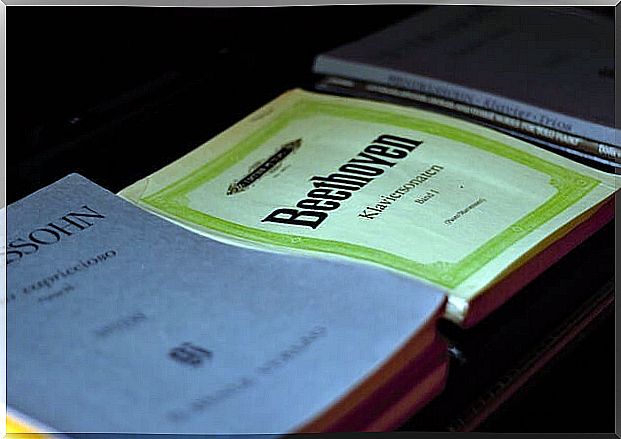Beethoven, Biography Of A Timeless Musician

Ludwig van Beethoven was one of those tormented souls who was torn between creation and suffering. Although he is considered the greatest musical genius of all time, he did not have a happy life, nor did he manage to fully enjoy his successes. Even from a young age he was in a fight with the world.
Beethoven composed a gigantic work. More than 32 piano sonatas, 17 quartets, 8 trios, 5 piano concertos and many more. However, what has aroused the admiration of entire generations are his symphonies, especially the Fifth, which made him very famous.
Despite the glory he had in life, Beethoven did not have a truly comfortable financial situation. Nor did she have a rewarding family or love life. Perhaps, for this reason, his work has that particular depth , and that somber and splendid tone at the same time. His music, like himself, is surprisingly complex.
An unhappy childhood
Ludwig van Beethoven came from a family of musicians. Both his father and grandfather were musicians by profession. His paternal grandparents, Ludwig and María Josepha Poll, had a strong influence on him. In fact, his grandfather was practically the only person with whom he established a healthy bond during his childhood, while his grandmother was a fond of alcohol.
Beethoven had four brothers. He was the second to be conceived. His mother, Maria Magdalena Kewerich, was sickly and weak in character. His father, Johann, was an alcoholic who was devoted to drinking and did little for his family. Grandpa Ludwig, on the other hand, identified with the boy’s talent and gave him the first lessons in playing the piano.
Ludwig van Beethoven did not know what the warmth of a home was . When the genius was 5 years old, he began to show his talents as a musician. As they say, his father wanted to take advantage of this to alleviate his situation of poverty, but he did not quite succeed. They say that at just 12 years old, Beethoven was already a surly child who claimed to hate the world.

Beethoven and his impressive creations
Despite everything, Beethoven managed to build great friendships. In fact, he always worshiped friendship. The first of those great ties was born with a young man named Wegeler, who brought him to live in the Breuning family home. There he took piano lessons, met what a stable family was like and lived his first love. He fell in love with Leonore, his partner in music studies . She, however, rejected it. This increased his annoyance with the world.
He traveled to Vienna in 1787 and completed his training. It was also where he began to become a music celebrity. He stayed to live there permanently from 1792. He then had his most fruitful stage as a composer. He also experienced great love disappointments. In 1794 he wanted to marry the singer Magdalena Will, but she called him “ugly and crazy” and rejected him. Later he met Julieta Guicciadi, who played with him for a time. For her he composed the famous Moonlight sonata .
Between 1806 and 1810 he lived a tender and passionate relationship with Teresa of Brunswick. At the same stage, he composed the Fifth and Sixth Symphonies, as well as the Apassionata . The relationship ended and then came a host of disappointments. Added to this was the fact that two of his brothers went to live with him. Actually, at his expense. This kept his finances in the red.

A sad ending
From the age of 30, Beethoven began to perceive the first symptoms of his deafness. For some reason, this embarrassed him, rather than worried him. He did not depend on his ear to compose, as his talent was far beyond normal. Therefore, he never forgave Goethe for making a public comment about his deafness.
Deafness was not a problem for Ludwig van Beethoven in terms of his work. He continued composing as if nothing had happened. Of course, over time, their social relationships eroded even more. His brothers wasted almost all the money he made. His sisters-in-law hated him. He was commissioned to be the tutor of one of his nephews and this was a huge burden for him, as the boy was more than rebellious.
His health began to weaken. Suffocated by the economic situation, he decided to ask his friends and acquaintances for help. The London Philharmonic Society gave him £ 100, as an advance on a concert to be given on his behalf. He wept when he received that help and promised to do the Tenth Symphony in gratitude for this gesture. However, death surprised him in 1824, before fulfilling his promise.









